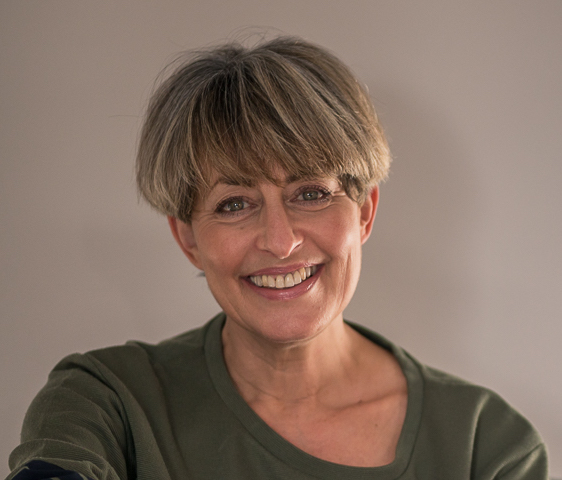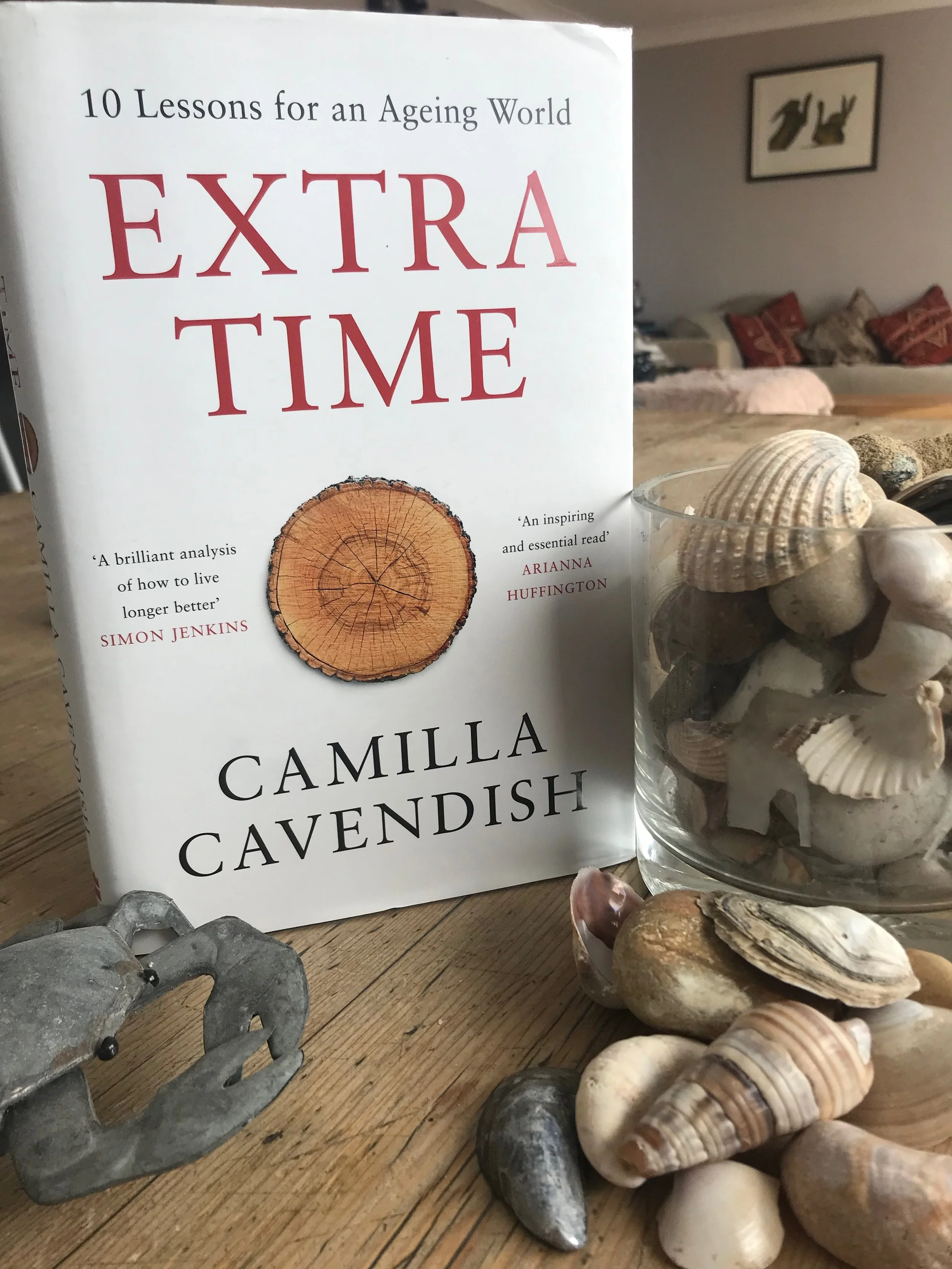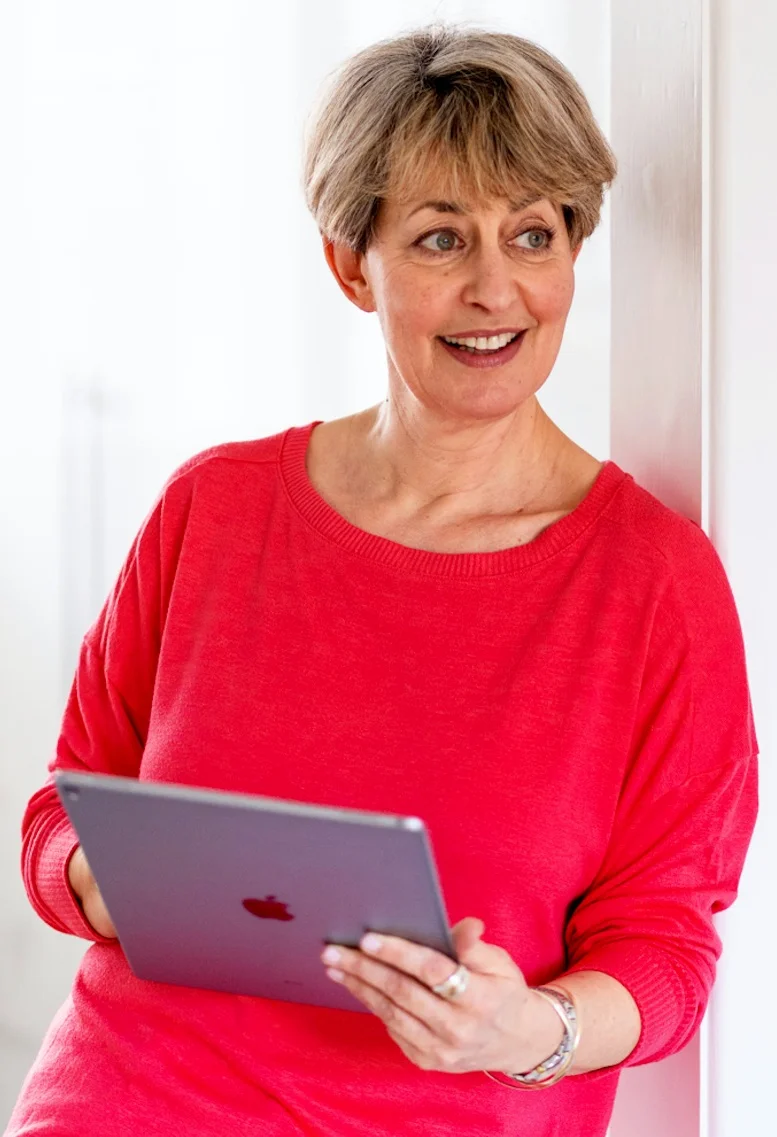Extra Time - the must-read book about ageing
In her fascinating and informative book, Extra Time, 10 Lessons For An Ageing World, award-winning journalist, broadcaster and former head of the Downing Street Policy Unit, Camilla Cavendish (now Baroness Cavendish of Little Venice, to give her her full title), says:
‘Living longer is not a blessing in my view, unless it is living better for longer.
Extra Time by Camilla Cavendish. Photo props courtesy of the temporary Heydays beach-side HQ and nothing to do with the book at all!
After watching her beloved father resign himself to what he saw as the decrepitude of old age almost three decades before he actually became frail and eventually died, she became fascinated by the many ways - through self-imposed or societal expectation - that age can prevent people living their fullest possible life.
Through her journalism and her work for the Department of Health, she also came to realise that as we all live longer, and as that longevity changes the balance and structure of our society (and not always in good ways), so we need to challenge our notions of ageing and find ways for individuals and society to make the most of the ‘Extra Time’ we have.
Camilla Cavendish travelled the world collecting research and stories for her book.
She breaks her findings down down into ten lessons, which reflect the extensive research she did with experts in every field from science to politics, and by travelling the world to find out what different countries are doing to meet this challenge.
They cover demography, how the stages of life are changing, the need and desire to retire, how our brains can continue to learn throughout our life, the gene therapy work that’s being done to combat ageing, the financial implications of having an ageing population and revolutions in health care.
My stand-out chapters
As engrossing, thorough and though-provoking as I found the whole book, the chapters that stood out for me were the ones about exercise and diet (if they were a pill we would all be taking it, she writes) , the importance of community, and the vital role having a purpose in life plays in our overall health, wellbeing and longevity.
I’m constantly banging on about how important exercise and eating well are (Camilla sites obesity as one of the big threats to life expectation), so it was heartening to read her confirmation that ‘a raft of studies around the world have identified exercise as the single most powerful predictor of whether we will age well… exercise is the equivalent of a miracle drug which can reduce the risk of so many diseases, even dementia.’
‘You won’t banish wrinkles by joining a cycling club’, she writes. ‘But you will have more energy, exude more vitality, seem younger and in biological terms be younger if you eat right and lead a more active life.’ (Check out Heyday Pam if you want evidence that that’s the truth)
Why human contact is so important
I’ve written in this post about research that’s shown how important community is to our longevity, and again Camilla confirms and expands on that. I particularly loved the story she tells about the Beacon Hill Village which started with a group of middle-aged people in Boston, Massachusetts, realising they could create a support community between local residents, founded on the principles of self reliance and voluntary co-operation, that would help them stay independent and in their own homes as they aged. The ‘village’ which begun in 1999 has led to 350 other communities using variations of the same support model around the world.
The Japanese have a word for it
Two other initiatives that Camilla describes stood out for me. One is in Japan, where the notion of ikigai (reason for being) originates and where a nation-wide network of Silver Centres was originally founded in 1975 by a Tokyo University professor. The centres provide an ever-changing selection of part-time work to older citizens that helps support local businesses and communities. One week participants could be cleaning parks, another packing goods, another doing the calligraphy needed for handmade certificates.
The centres are now subsidised by the government, and although the workers are not employees, they are paid dividends for their contributions. As the director of the Silver Centre in Edogawa, east Tokyo, explains ‘It’s not just about doing a job, it’s building camaraderie and helping others. Their effort is appreciated by the local community and leads to ikigai.’ It’s clearly something the 2,400 people who come to his centre every month, the oldest of whom is 98, agree with, and the benefits can be seen from research shows that 93% of them are very healthy.
A positive ageing story from Africa
Another ikigai- focused initiative where older people are helping others in their communities is in Zimbabwe. Harare based Dr Dixon Chibanda realised that as one of only five trained psychiatrists in a nation of 10 million people, he could never meet the needs of the population without help.
So he set up a trial network of what he called Friendship Benches, park benches where people trained in talking therapies could sit, out in the open, waiting to give friendly, compassionate advice to anyone who wanted to sit down alongside them and talk.
Dr Chibanda tried putting different kinds of people on the bench as listeners, including men and younger women. But the people who proved the most effective at the all-important listening skills - more effective even than qualified doctors when it came to helping with depression - were grandmothers.
When the first clinical trials ended Chibanda’s team ran out of funding, but rather than giving up, the grandmothers chose to keep going. And when their own mental health was analysed by the team, it was found to be far higher than they expected because, they concluded, ‘their work brought them into contact with new people and gave them an important role in the community.’ There are now Friendship Benches in 70 communities in Zimbabwe. You can read more about them here
Who needs to do what
Camilla is as robust in her calls for the need for societal, governmental and structural change to meet the challenges of an ageing population as she is in her rallying cry for each of us to take responsibility for doing what we can to ensure that our Extra Time is as healthy, engaged and fulfilled as possible. Reading this tremendous book would be the best first step.
What are you already doing or planning to do that gives you a sense of purpose?
Other posts you’ll enjoy
Challenging the stereotypes of ageing
A festival celebrating the creativity of artists over 60
How Heydayer John finds his ikigai through his conversation-starting clothes






